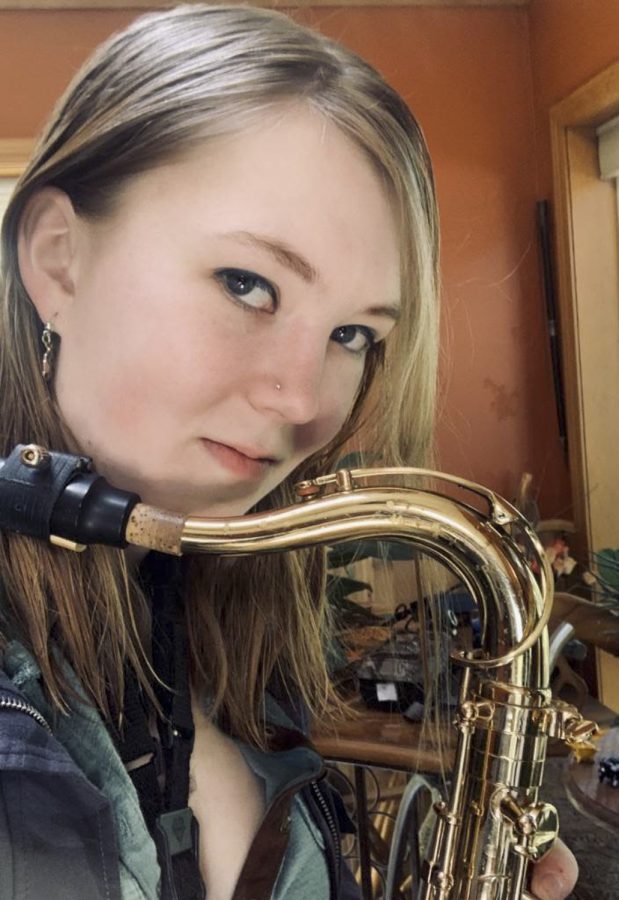Article by WSU alumna appears in prestigious jazz music journal
Former undergraduate student publishes article about the history of women in jazz music genre
Van Vlleet graduated last semester and majored in criminal justice.
October 22, 2020
Former WSU student Kaitlyn Van Vleet’s honors thesis has been selected for publication in Jazz Education Networks’ “Journal for Jazz Education in Research and Practice.”
Van Vleet’s article, “Women in Jazz Music: A Hundred Years of Gender Disparity in Jazz Study and Performance,” focuses on the role of women in jazz and hurdles that female jazz musicians face getting to the top of the profession.
“I did my research and the interviews kind of while I was writing as well,” Van Vleet said. “In January [2020] I started doing a lot of research … and then March I just wrote it.”
For the article, Van Vleet spoke to artists such as Grammy Award-nominated singer Roseanna Vitro and pianist Pamela York. She said interviewing artists was one of the projects’ more memorable aspects.
“I was surprised initially that a lot of these people were willing to talk to me,” Van Vleet said. “They’re the kind of people you study and look up to … You’re like ‘there’s no way this person will contact me back,’ so it was impressive that they were willing to do it.”
The article started out as a thesis for the Honors College, passing with distinction, despite having limited time with it, she said. Van Vleet did almost the entirety of her thesis during her final semester at WSU.
One of the professors who sat on the panel and judged her thesis was Ashley Boyd, associate professor of English. Boyd said she was impressed with Van Vleet’s work.
“It’s a huge accomplishment for an undergraduate to get published,” Boyd said. “The thing I appreciated most about [Kaitlyn’s Thesis] is that she had a research aspect, in terms of surveying literature in the field … but then she also did research in terms of actual interviews with people … I think that she kind of went above and beyond in that way.”
Van Vleet said preparing the piece for publication was a challenge, because it required major formatting changes, and because she needed to make major cuts to the piece. The original thesis was about 12,000 words, while the journal’s maximum word-count is only 8,000.
“By the time you get to your last three words you’re just going back, nitpicking and trying to make some of your words into contractions if you can,” Van Vleet said.
In the future, Van Vleet hopes to split her time between her passion for music and a career in her major, criminal justice and criminology. She said she isn’t working on any articles right now, but she wants to keep playing saxophone and stay involved with music.
“I don’t want to sacrifice that for a career in criminal justice,” Van Vleet said. “I wanna keep doing it on the side. Like coffee shop jazz, that sort of thing.”










